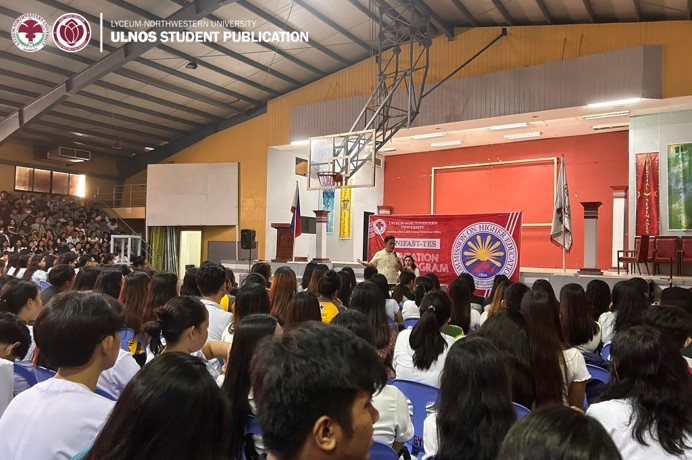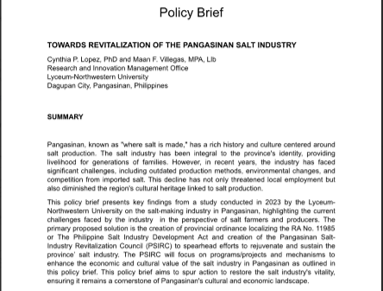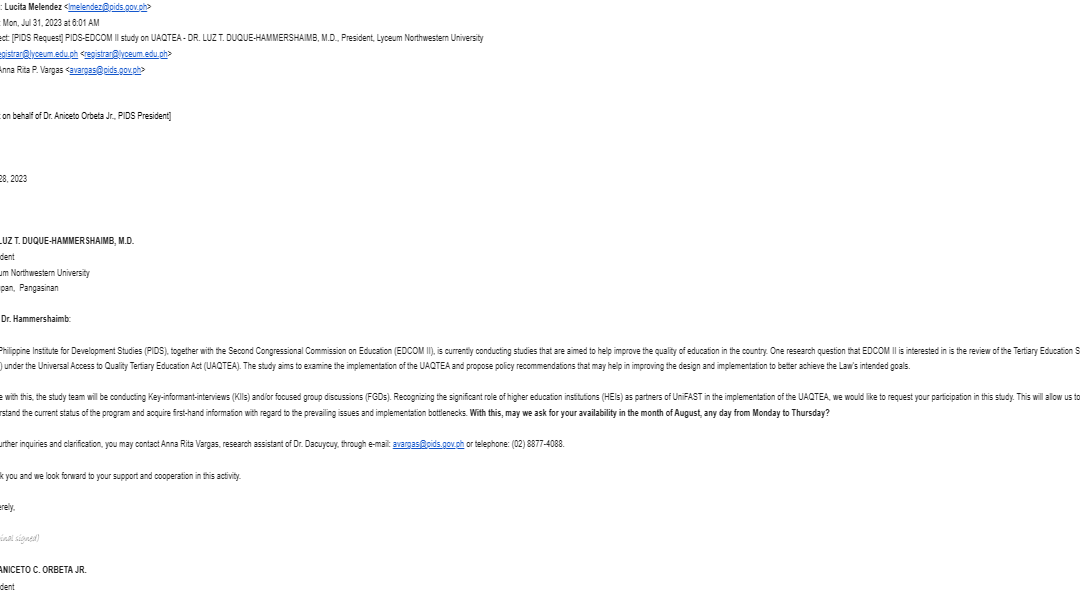


Lyceum-Northwestern University’s participation in various impactful initiatives highlights its ongoing commitment to advancing education, supporting local industries, and fostering access to higher education. One notable contribution is the university’s invitation to conduct a study under the Education Commission (EDCOM), which aims to assess and improve the quality of education in the Philippines. By engaging in this comprehensive study, Lyceum-Northwestern University is directly contributing to SDG 4: Quality Education, helping to shape policies and interventions that ensure inclusive, equitable, and quality education for all. The findings from this study are expected to inform future reforms, improve educational outcomes, and address key challenges faced by the Philippine education system, thereby supporting national efforts to enhance the overall quality of education at all levels.
In addition to its work in education, the university also played an instrumental role in advocating for the revitalization of the Pangasinan Salt Industry. As part of a Policy Brief presented to local government units and industry stakeholders, the university emphasized the importance of supporting sustainable agricultural practices, boosting local economies, and preserving the traditional livelihoods of salt farmers in Pangasinan. This initiative aligns with SDG 8: Decent Work and Economic Growth by promoting sustainable industries and ensuring that local workers benefit from economic growth. Furthermore, it supports SDG 12: Responsible Consumption and Production, encouraging the sustainable production of salt while highlighting the need for innovation and investment in the local industry. Through this policy brief, Lyceum-Northwestern University is contributing to regional economic development, sustainability, and the improvement of livelihoods in the community.
Lastly, Lyceum-Northwestern University continues to promote access to higher education through its yearly Unifast Orientation program for students granted scholarships under the Unified Financial Assistance System for Tertiary Education (Unifast), along with their guardians or parents. This program is pivotal in ensuring that qualified students and their families are well-informed about the opportunities and benefits available to them under the Unifast system. By supporting SDG 10: Reduced Inequality and SDG 4: Quality Education, the Unifast Orientation program ensures that deserving students, regardless of their socio-economic backgrounds, have the resources and guidance they need to succeed in higher education. The initiative empowers students and families, promotes social mobility, and fosters a more equitable society by providing greater access to quality education, ultimately helping to reduce barriers to higher education for marginalized communities.

